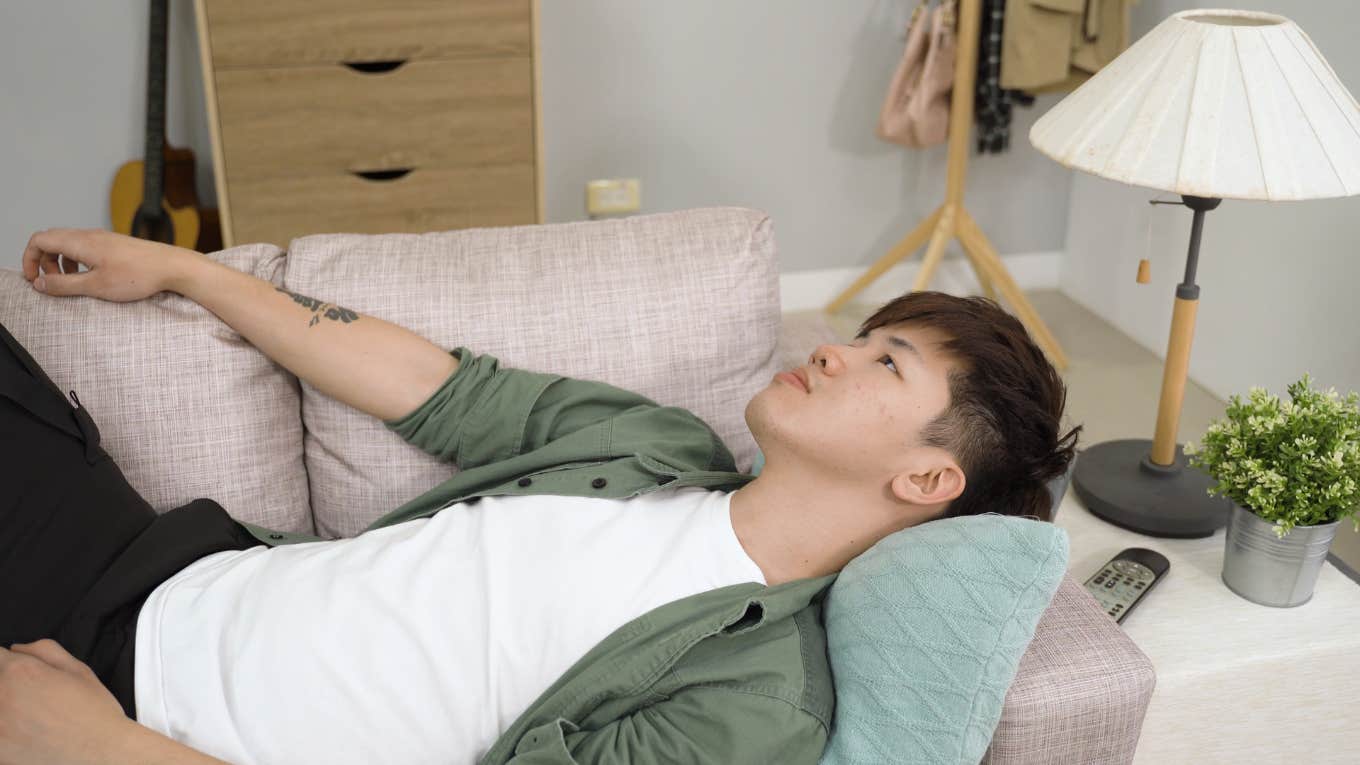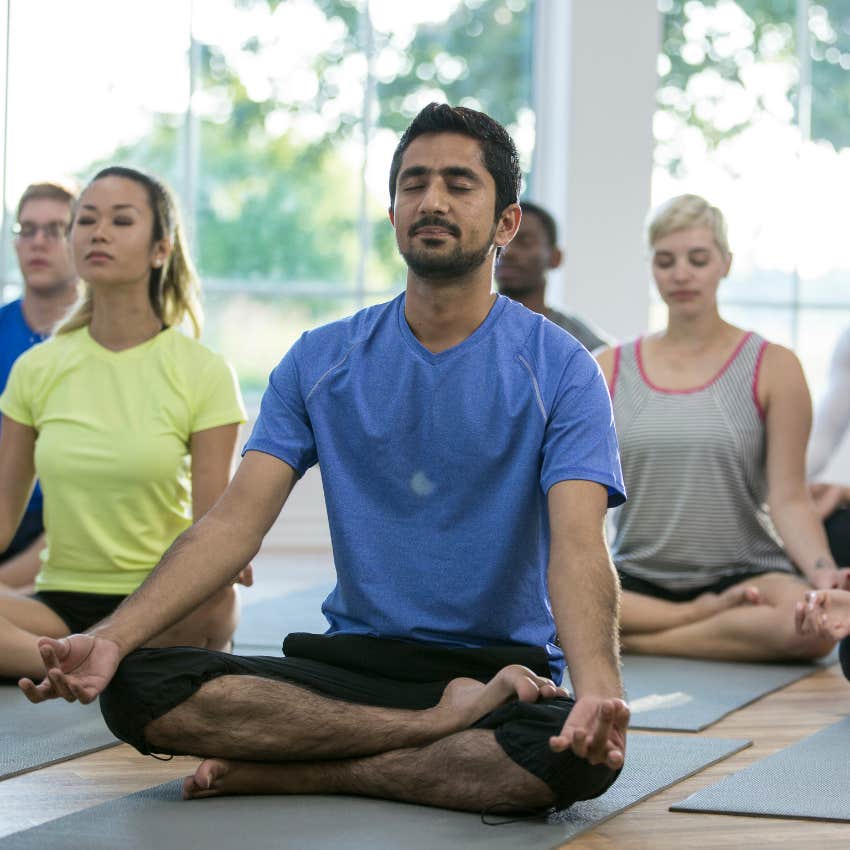Could You Win South Korea's Space-Out Competition, Where Contestants Compete To Do Nothing For 90 Minutes?
90 whole minutes of doing nothing? Sounds terrifying!
 PRPicturesProduction | Shutterstock
PRPicturesProduction | Shutterstock Nowadays, most of us are absolutely starving for down time. In South Korea, that's been so true for so long that the country is now in year eleven of an unlikely national competition: A contest to see who's the best at zoning out for a full hour-and-a-half.
The difficulty of the task, along with the benefits the most recent winner gleaned from the experience, speak to just how overworked our brains are, and how much we'd all benefit from being willing to just be alone with ourselves for a little bit each day.
South Korea has a 'Space-Out Competition,' a contest to zone out for a full 90 minutes.
Depending on your lifestyle and brain chemistry, the prospect of 90 minutes doing nothing sounds either like a dream or a waking nightmare. Either way, whatever your expectations about how easy or hard this would be to do, you're probably wrong according to those who've tried!
The competition consists of exactly what it sounds like: Sitting still, in total quiet, for a full hour and a half with no phones and no conversations. You're not even allowed to nod off! Which is where I personally would end up disqualified, because one thing about me? When there's uninterrupted quiet time, I'm GOING to end up with a neck ache from going narcoleptic and doing the head-bob.
The competition was created in 2014 to critique modern work culture and burnout.
The competition started out more as a public art project than, say, a new off-the-beaten-path sport. Visual artist Woopsyang started the project in 2014, having people gather next to the Han River that runs through Seoul to stop and be present for 90 minutes, while also critiquing the notion that rest equals being unproductive.
Now, it has evolved into a yearly cultural ritual. Participants wear heart rate monitors to keep track of just how relaxed they are (or aren't), and this is partly what is used to determine the winner.
 FatCamera | Getty Images Signature | Canva Pro
FatCamera | Getty Images Signature | Canva Pro
Audience members also vote on who they'd like to win, and the votes are combined with the biometric data to determine who truly knocked the "do nothing" task out of the park, or riverside plaza, as it were.
The event has been replicated in other cities, too, including Tokyo and Taipei, and contestants have come from all over the world, with 2024's hosting contenders from France, Nepal, South Africa, Vietnam, and Malaysia, to name just a few. What draws the crowds? The benefits that many participants say they reap from the experience.
The 2025 winner described the 'Space-Out Competition' as an almost out-of-body experience.
If you've ever done practices like deep meditation or breathwork, you may have discovered that the longer and deeper you go, the more you start to feel like you may be leaving your body for a moment, or at least drifting into chambers of your mind you've never visited before.
There is some neuroscience to this: Our brain waves produce different frequencies depending on whether we're asleep, awake, or somewhere in between. Those in-between states are where everything from creativity and memory recall to more esoteric phenomena like intuition, lucid dreaming, and, if you're a believer in such things, out-of-body experiences and astral projecting are said to occur.
This year's winner, 36-year-old business owner and musician Byung-jin Park, described something that sounds similar to these neither-here-nor-there experiences: “As time passed, I started to forget where I was," he told National Geographic. "It felt like my body had disappeared."
Other participants, like New York Times writer Yang Zhuang, had an experience probably more relatable to most of us. A strenuous but edifying struggle to not be thrown off by buzzing bugs and racing thoughts. But winning isn't ultimately the point; it's the pursuit. Woopsyang created the contest to address burnout, after all.
And stopping to be alone with our thoughts is anathema to most of us. In a 2014 University of Virginia study, 67% of men and 24% of women chose a painful electric shock over being alone with their thoughts for just 15 minutes, let alone 90.
Scientists say we're missing out because of it. Zoning out is what activates our brains' default mode network that governs self-reflection, daydreaming, and memory-making. As Park put it, “spacing out won’t solve all your problems, but you will feel your thoughts transform. It’s super refreshing." Sounds like we should all be suiting up for a "Space-Out Competition" of our own.
John Sundholm is a writer, editor, and video personality with 20 years of experience in media and entertainment. He covers culture, mental health, and human interest topics.

